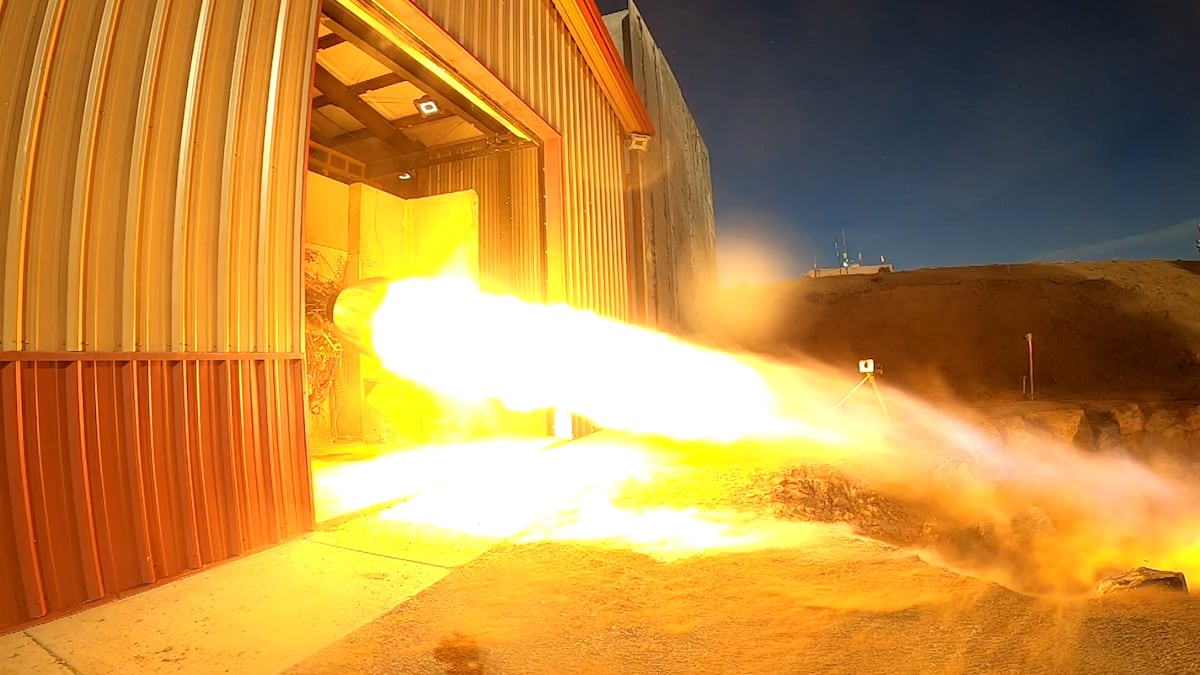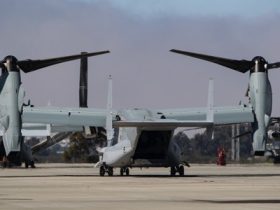Raytheon and growing propulsion firm Ursa Major on Wednesday announced they have conducted successful missile flight tests with a long-range solid rocket motor for the Army.
In a briefing with reporters Tuesday, Ursa Major CEO Dan Jablonsky said his company has so far twice flown this motor with Raytheon, an RTX company, at Naval Air Weapons Station China Lake.
The tests of Ursa Major’s motor — and the rapid pace at which it was developed — show that the nine-year-old company is taking an increasingly prominent role in the military’s propulsion sector, Jablonsky said.
“In this particular program, we went from concept and design to firing and flight on the range in just under four months, which is lightning fast … for solid rocket motors,” Jablonsky said. “Using our additive manufacturing techniques, … agile manufacturing systems and using the expertise and know-how that we’ve developed as propulsion engineers, we were able to work with Raytheon in a very, very quick time frame.”
Since starting its solid rocket motor program 14 months ago, Ursa Major has grown it to more than 40 people, Jablonsky said. Its manufacturing process cell is producing its own energetics on site to power the motors and has developed several configurations for programs including the Navy’s Standard Missile platform.
These tests show Ursa Major’s agile manufacturing techniques work, Jablonsky said, and that the company can field a system that could be used in several programs.
“Part of it was not just proving that we could do this once in this configuration, with gear that’s not adaptable to other sets, but the same manufacturing cells that were used to configure and build these can be used for other types of rounds as well,” Jablonsky said.
Ursa Major plans to next conduct more tests of this motor, including with an extended-range version, in 2025, according to Jablonsky. The system is expected to be qualified in 2026.
Jablonsky said he could not identify the Raytheon program its motor flew on, but said it has a diameter of less than 10 inches and a range of less than 1,000 kilometers.
Ursa Major wants its work on this program to prove it can scale up its ability to produce solid rocket motors to industrial level and help meet U.S. defense needs, Jablonsky said.
RTX was one of several firms that invested in Ursa Major in 2023 to help the company further develop its solid rocket motor program and expand its production capabilities.
Stephen Losey is the air warfare reporter for Defense News. He previously covered leadership and personnel issues at Air Force Times, and the Pentagon, special operations and air warfare at Military.com. He has traveled to the Middle East to cover U.S. Air Force operations.
Read the full article here








Leave a Reply